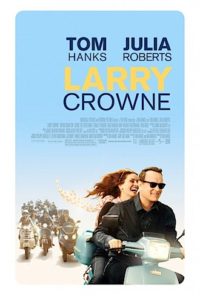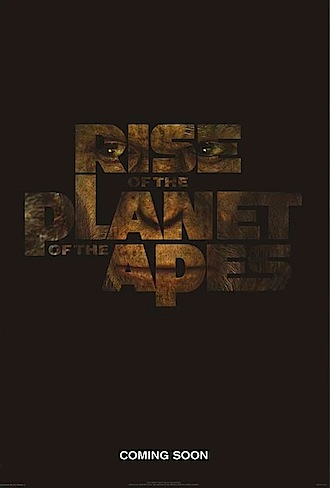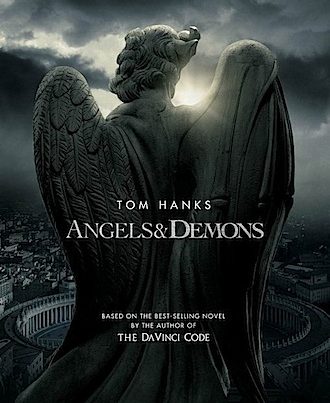 Back in 1968 the world was amazed to see a simian-looking creature displaying rudimentary (and yet clearly) human qualities. But enough about my birth, I’m here to talk about Planet of the Apes, the nightmarish vision of a world turned upside down: apes that speak, humans that are mute and enslaved, orangutans doing “science”. And of course, the big shock back then was that “it was Earth all along” – we’d caused this catastrophe ourselves with our environmental pig-headedness and our nuclear arrogance. The success of that blisteringly effective original prompted several sequels to diminished effect – although the sight (in Beneath the Planet of the Apes) of Charlton Heston pushing the final atomic button to destroy the planet in disgust at the whole sorry mess was seared on to my childhood brain forever.
Back in 1968 the world was amazed to see a simian-looking creature displaying rudimentary (and yet clearly) human qualities. But enough about my birth, I’m here to talk about Planet of the Apes, the nightmarish vision of a world turned upside down: apes that speak, humans that are mute and enslaved, orangutans doing “science”. And of course, the big shock back then was that “it was Earth all along” – we’d caused this catastrophe ourselves with our environmental pig-headedness and our nuclear arrogance. The success of that blisteringly effective original prompted several sequels to diminished effect – although the sight (in Beneath the Planet of the Apes) of Charlton Heston pushing the final atomic button to destroy the planet in disgust at the whole sorry mess was seared on to my childhood brain forever.
In 2001 the series got the re-boot treatment courtesy of Tim Burton, a miscast Mark Wahlberg (when is he ever not?) and the final triumphant display of latex ape mask technology. Now the apes are back and there’s no sign of rubber anywhere to be found – except in some of the human performances perhaps. Rise of the Planet of the Apes serves as a prequel to the Burton film rather than a total from scratch effort – although there’s no equivalent in the original series – and the film does a terrific job of setting up a story that many of us already know as well as fondly honouring many details from the original series.
James Franco plays a genetic biologist working on cure for Alzheimer’s – his Dad (John Lithgow) suffers from the disease. When his programme is shut down after a disastrous demonstration to his Big Pharma company board, Franco rescues the last baby chimp in the lab, names him Caesar and raises him in secret. But the secret drug that Caesar is full of not only repairs the brain, it grows new function too – at an accelerated rate. Caesar isn’t just smart, he’s getting smarter.
Removed from the family to a San Francisco simian sanctuary (that is anything but) Caesar sees injustice all around him: apes mistreated at the ape pound, apes experimented on at the laboratory, apes on display for human amusement. Something must be done. Revolution is in the air.
The ape effects (courtesy of the Miramar geniuses at Weta and the sublime performance capture skills of Andy Serkis and others) are stunning. In fact, the ape drama is usually more effective than the slightly stilted human drama but director Rupert Wyatt marshalls his forces expertly and builds the story to an explosive and brilliantly realised climax.
My companion had never seen a Planet of the Apes film and was barely cognisant of the premise (“it’s about a planet, with apes on it, right?”). But she had as big a blast as I did. Rise of the Planet of the Apes is as successful a popcorn movie as you’ll see this year.
 One day we are going to look back on movies like Horrible Bosses as perfect illustrations of the early-21st Century economic meltdown zeitgeist – that is if we haven’t all been wiped out by James Franco’s Alzheimer’s virus first. Jason Bateman, Jason Sudeikis and relative newcomer Charlie Day are ordinary joes toiling in dead-ish end jobs working for tyrants and psychopaths. Of course, since the Global Financial Meltdown they can’t just quit – they have to come up with something a little more final.
One day we are going to look back on movies like Horrible Bosses as perfect illustrations of the early-21st Century economic meltdown zeitgeist – that is if we haven’t all been wiped out by James Franco’s Alzheimer’s virus first. Jason Bateman, Jason Sudeikis and relative newcomer Charlie Day are ordinary joes toiling in dead-ish end jobs working for tyrants and psychopaths. Of course, since the Global Financial Meltdown they can’t just quit – they have to come up with something a little more final.
There are some decent laughs scattered throughout Horrible Bosses (plus a solid premise knowingy based on Hitchcock’s Strangers on a Train) is too often reduced to some very off-colour humour – although to be fair, the big crowd with whom I watched the film responded better to the blue stuff than I did so I guess the studio knows its market. One word of warning: the great Kevin Spacey is phoning his performance in. If you want to see him as a truly horrible boss find Swimming With Sharks at the the video store.
 I’ve never walked out of Tom Hanks film before but I couldn’t stand another minute of Larry Crowne, an insufferably patronising hymn to the ordinary decent working man, made by a billionaire actor and his friends. Hanks (who also co-wrote and directed) plays Crowne, a decent all-American guy and 20 year military veteran who is fired from his retail job for not having a college degree. He enrols at the local community college where he is taught speaking skills by a depressed English Lit scholar played by Julia Roberts. And that’s where I ducked out, sorry.
I’ve never walked out of Tom Hanks film before but I couldn’t stand another minute of Larry Crowne, an insufferably patronising hymn to the ordinary decent working man, made by a billionaire actor and his friends. Hanks (who also co-wrote and directed) plays Crowne, a decent all-American guy and 20 year military veteran who is fired from his retail job for not having a college degree. He enrols at the local community college where he is taught speaking skills by a depressed English Lit scholar played by Julia Roberts. And that’s where I ducked out, sorry.
There’s something just plain wrong about a botoxed, weaved and dyed movie star, coasting on fading charm, trying to portray one of the working and non-working poor – people who are genuinely doing it tough in this new economic reality. Frankly, Woody from Toy Story is a more expressive actor these days and at least you fully believe in his world.
Printed in Wellington’s Capital Times on Wednesday 10 August, 2011.


